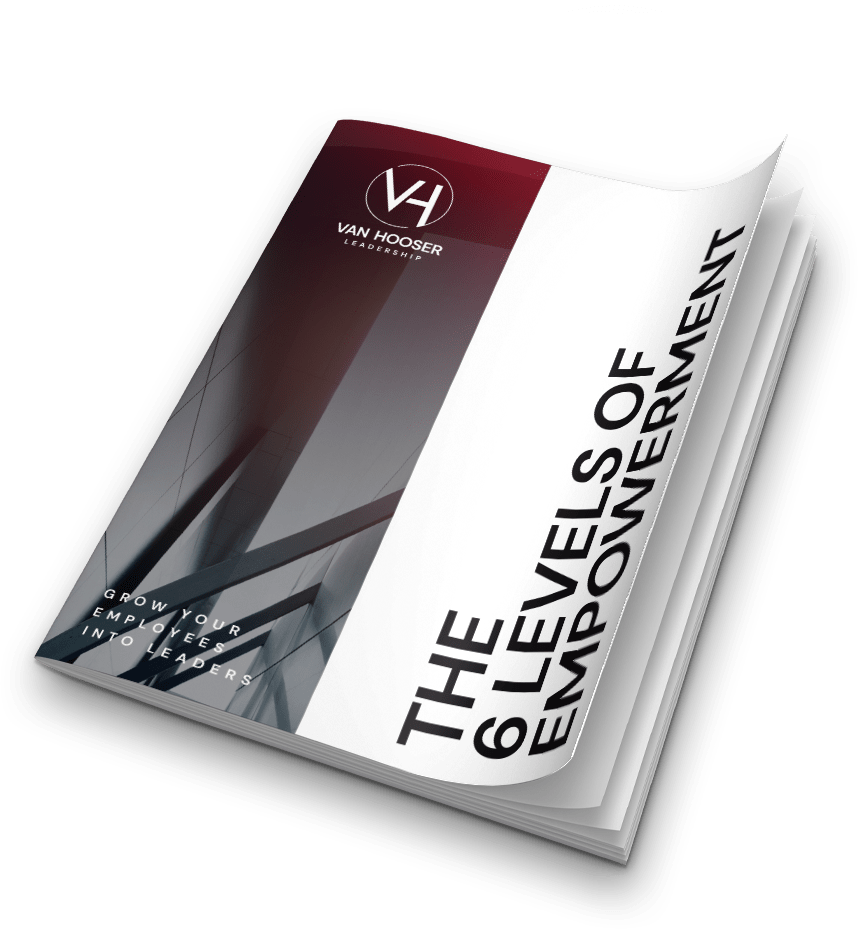Your leadership success depends on how well you predict, prepare and address the emotional response from your people. Because of today’s diverse workforce, let’s discuss factors that can contribute to the emotional response your people might have to your leadership so you both can be more successful.
How Leaders Can Prepare for Employee’s Emotional Response
Every interaction you have with your people causes an emotional response from them. Whether we’re talking about your choice to say “hello” when you walk past them or not, whether you remember or forget their birthday, if you choose to promote someone other than them, or if they find out you’ve lied to them in the past…no matter how big or small–every interaction matters. Every interaction causes a reaction, and your people will react by becoming either more engaged, holding back, or checking out.
Because of the effects of these reactions, you should act very intentionally. Why? When you intentionally, accurately predict and fully prepare yourself to deal with your people’s reactions, then you will start consistently building better relationships with your people. Without a doubt, better leader/employee relationships lead to better overall performance. Ultimately, in the organization, your success and your people’s success depends on your ability to lead well. Let’s discuss three predictable emotional responses you can predict and prepare for.
3 Predictable Emotional Responses
- Engage ?- When an interaction happens and an employee chooses to respond with a more engaged attitude, leaders can expect those employees to become more confident, happy, optimistic, fulfilled, or encouraged. These emotions will help lead to better employee performance, job satisfaction, and employee retention.
- Hold Back ? – When an interaction happens and an employee chooses to respond by holding back, leaders can expect those employees to become discouraged, frustrated, doubtful, upset, or confused. These emotions may lead to decreased employee performance, negative morale, uncertain job satisfaction, and potentially employee retention issues.
- Check Out ?- When an interaction happens and an employee chooses to respond by checking out, leaders can expect those employees to become defensive, vindictive, demotivated, alienated, and ultimately hurt. These emotions may lead to significantly decreased employee performance, negative morale that potentially permeates the entire team, and likely reduced employee retention.
Have you experienced any of those results in your workforce? If so, now is the time to start working toward predicting and better preparing to handle an employee’s emotional response to your leadership.
How Do You Predict An Emotional Response
Predicting an emotional response from your employees is not always an easy task. Today’s workforce is the most diverse to date which means the challenge to accurately predict those responses may be more difficult than ever. I did not say impossible, I said difficult. Are you up for the challenge?
As I am working with leaders, I place incredibly high importance on building relationships with your people, getting to know their personal stories, getting to know what their personal and professional goals are, etc. With that information, you give yourself a very precise playbook on what to expect from them going forward. While I cannot build that relationship and give you all of those specific answers, I can give you a substantial place to start accurately predicting the employee’s emotional response. Let’s take a very brief look into motivation, significant emotional events, and generational differences.
1-Motivation
I know this is old school, but it is still relevant today: Maslow’s Hierarchy of Needs. In case you are not familiar with this theory, check this out: Old School Theory for New School Leaders

I’ll give you one quick example of how this theory can help you predict your people’s emotional response. Depending on which need your employee is working to fulfill, their emotional response may be different. If an employee is working to fulfill their social needs and you make a decision to not include them in a certain project, they may start holding back or check out. They may start looking for other leaders or employers who will make them feel wanted as a valuable part of the team. On the other hand, if an employee is primarily focused on fulfilling their self-actualization needs within their job and you make a decision to not include them in a certain project, it’s possible they may be more engaged in their current responsibilities. How could that be? They might see that project as something that would take them off track from fulfilling their true potential…it may take more time away from things that hold more importance to them.
2. Generations In The Workforce
I could dig deep into what has shaped generations and how we see each one play out in the workforce. However, for the time being, let’s look at general tendencies within the generations and what leaders might expect from them.
Traditionalists
Many in this generation automatically respect top-down leadership. When the leader gives direction, they put their head down and get to work. Oftentimes, they don’t buck. This generation is known for being thankful to have a job and for sticking with a company long-term. It’s possible that because of those characteristics, reading emotional responses from those in this generation may be difficult. You’ll have to work at building really strong relationships with them so you can best predict and prepare for their emotional response.
Boomers
Many in this generation grew up in the workplace with a very competitive attitude. Early in their career, this generation was the largest to date and there was only so much opportunity to be had. Many Boomers now feel like they have put in their time, earned their place in the workforce, and want to be respected because of it. As you lead this generation and work to predict their emotional response, consider their decades of professional experiences that have shaped them into the person you know today.
Gen X
Researches have dubbed those in Gen X to be independent workers and thinkers. This generation came in behind baby boomers and has pushed for years to break through the grey ceiling of Boomers. Many in Gen X are now in the life stage where they are taking care of both their parents and their kids. When working to accurately predict the emotional response from those in Gen X, conder their current life situation and future professional goals.
Millennials
Millennials are known for pushing for even greater work-life balance/integration than previous generations have known. Many Millennials are now taking over leadership positions that have been previously held by Boomers and Gen X for decades. People in this generation have come up in the workplace saying, “There’s an app for that…”. As you work to predict Millennials’ emotional response, consider their desire for freedom and efficiency.
Gen Z
People in this generation are growing up in a world where out-of-the-box jobs are becoming more normal. They’ve also seen person after person achieve unprecedented success at a very early age. When working to lead and predict Gen Z’s emotional response, consider how technology and access to people around the world have shaped their perspective on what is possible for them.
3. Significant Emotional Events
As you dig into the psyche of people, you will find outliers who don’t conform to the generational and motivational information we just talked about. The outliers do not make this information obsolete at all because many times, the basic principles apply. However, leaders have to be able to recognize outliers. If you don’t, you might not be able to accurately predict and prepare for their emotional response to your actions.
What causes people to not fit the statistical or theoretical norm? Most likely because something in their life has happened that shaped them into who they have become, which is different than the majority. Sociologist Morris Massey coined the term Significant Emotional Events (SEE). A Significant Emotional Event is one that causes a person to question and even change their values. To create a more influential connection with people, you need to know the stories of the Significant Emotional Events in their lives—good and bad. There is information held within those stories that you will never be able to gather from science or statistics.
How do you get your people to open up to you on a deeper level? It starts by building trust in the little things. For example, make people feel welcome, grant opportunities for growth, be honest with them in everything, just to name a few. When people trust you and realize your intentions are pure, to help you BOTH succeed, then they will be more likely to open up to you about who they are, what has shaped them, and what their goals are. That is the information which will help you better predict their emotional response to actions and decision you make.
Predict, Prepare, and Address
Do you want a more engaged workforce, higher employee retention, improved performance, an attractive company culture, and so on? Then I urge you to take action! Start today by more intentionally leading your people in a way that will create an engaged response from them. Get to know them on a deeper level so you can build stronger leader/employee relationships that lead to better performance. When you perform better, your team performs better!
Need help to connect leaders & employees in order to get better performance? I can help! Let’s talk!
#emotionalresponse #emotionalintelligence #EI #softskills #leadershiptraining #workfforcetraining










